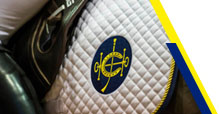

About HKJC
Striding on together - the HKJC and equestrian sport share the same spirit of partnership and commitment to excellence.
Health Code
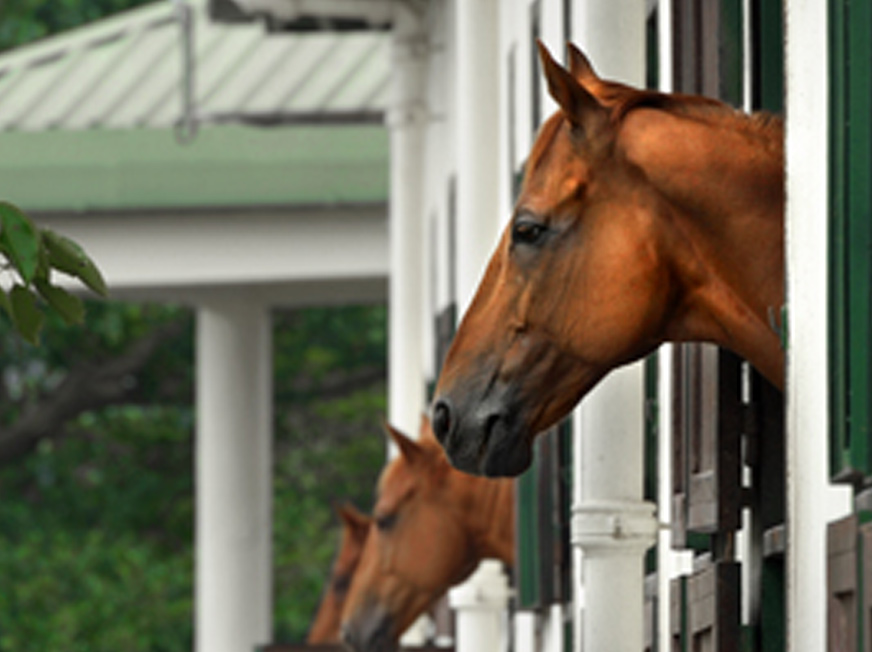
The Hong Kong Jockey Club (the Club) has an established Health Code promoting horse and pony health and welfare. The Health Code sets the standard of care and disease surveillance that must be provided to all equestrian horses and ponies stabled in Hong Kong and Conghua. The guidelines include aspects such as infectious disease control to ensure the Hong Kong horse population remains free from the most serious of equine infectious diseases. The vaccination programme warrants every equine resident in Hong Kong to be vaccinated against Equine Influenza, Equine Herpes Virus, Japanese Encephalitis, and Tetanus and the parasite control procedures are used to best manage internal parasites amongst our equine residents. Horses and ponies have tri-annual worm egg counts in addition to strategically administered anthelmintic (de-worming) drugs.
Expert Services
All riding schools have access to expert advice from the Club's Department of Veterinary Clinical Services. The team of equestrian vets are on hand 24/7, in addition, educational training programs are delivered to all riding schools if needed. Riding schools and retired horse units are subject to regular inspections to ensure horse health, welfare and high standards of husbandry. Horse foot care, health and farriery is the responsibility of the Farrier Services Department and all horses in Hong Kong have access to the Club's resident Master Saddler to ensure tack is fitted correctly.
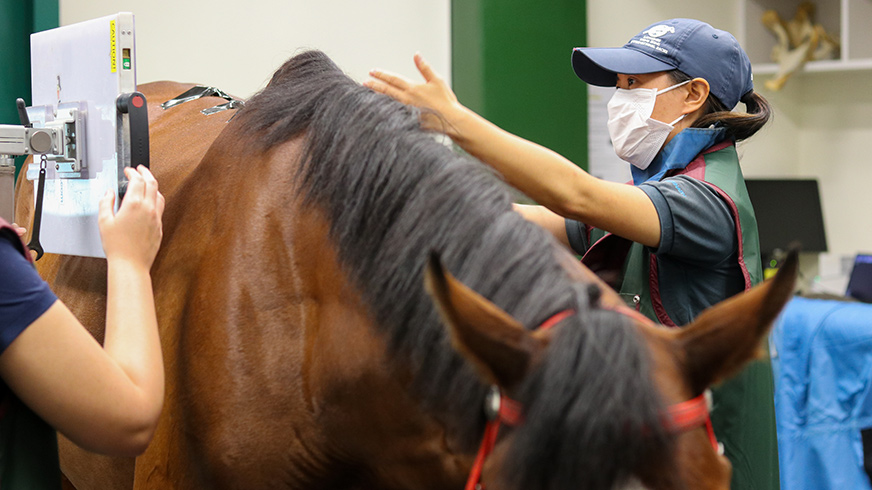
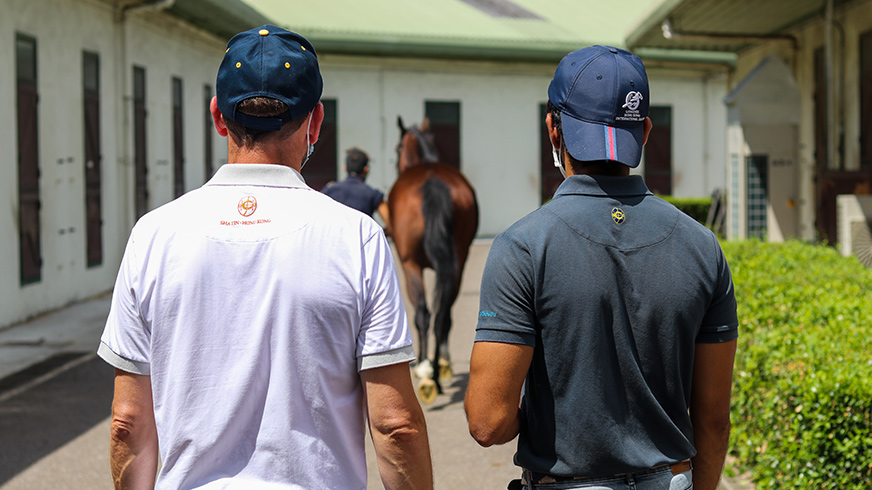
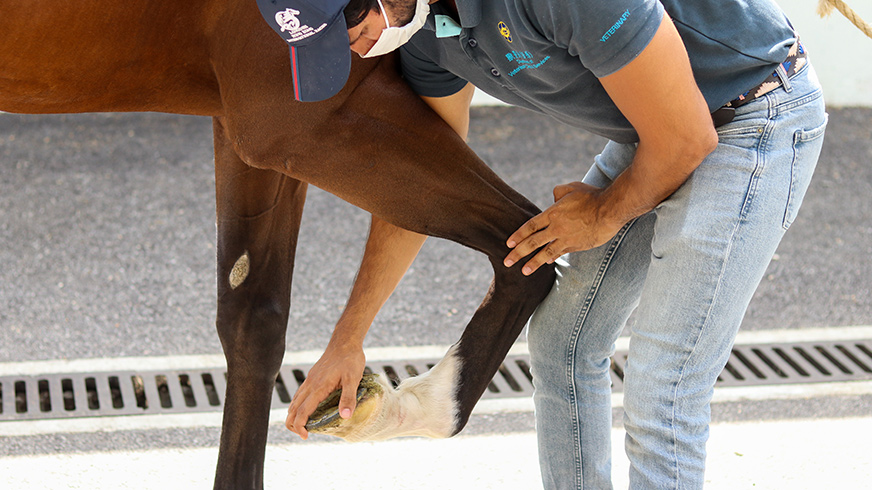
Climate
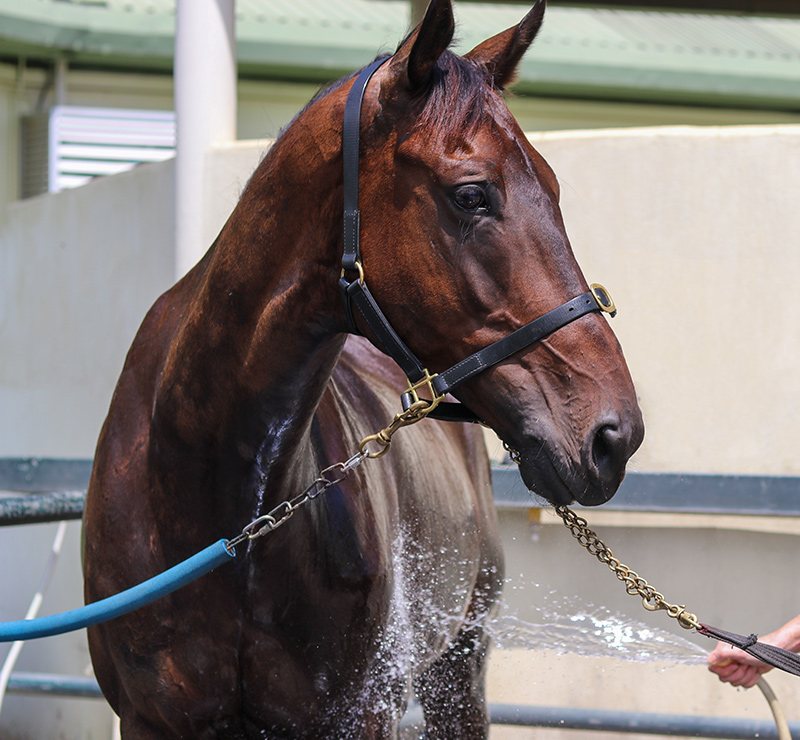
The climate in Hong Kong presents a challenge for the equine population. To best ensure the welfare of horses in the hot, humid weather, each equestrian establishment is provided with ‘Hot Weather Advice', providing evidence based guidelines for the care and management of horses in extreme temperatures. These guidelines provide the recommended level of exercise for a range of temperatures and the best practices to care for horses in hot weather.
Export of Horses and Ponies
Hong Kong based horses do have access to turnout (spelling) and free exercise as much as possible, but due to the space limitations, horses and ponies cannot live out in the field for long periods of time. The Club has the option to consider export to an overseas location for horses and ponies requiring a long period of turnout for rehabilitation purposes, more frequent turnout for their health or temperament, or for a change of pace following retirement.
Export of Retired Riding School Horses and Ponies
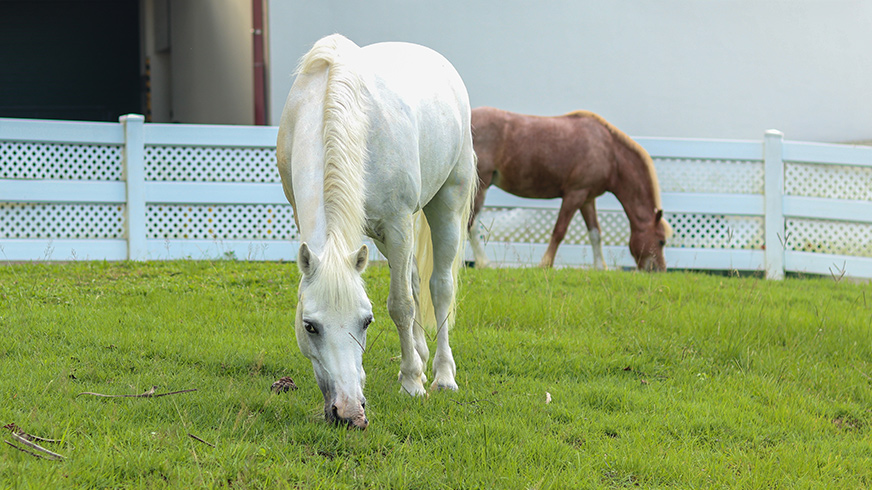
After many years of good service it is the honor of the Club to export suitable horses and ponies overseas on their retirement on a case by case basis. Although these horses and ponies are retiring from riding school duties, they are still able to enjoy many more good years of life, albeit at a quieter pace. In order to be considered for export, horses and ponies need to undergo strict health checks to make sure they are fit and healthy enough for quarantine and for the long flight overseas. At all points during their journey they are cared for and monitored by experts ensuring they arrive in their new home in the best condition possible.
Export of Retired Racehorses
Horses in the Retired Racehorse Programme that have an injury requiring significant rest and rehabilitation are considered for export to one of the Club’s retraining and rehoming partners. Horses need to be sufficiently recovered from their initial injury to manage the long trip overseas without detriment to their health, and have a good prognosis for recovery and athletic potential after their period of rest. The decision to rest and rehabilitate a horse in Hong Kong, or overseas, is based on many factors including character of the horse, potential for second career in Hong Kong, required duration of rest, and most importantly, what is best for the welfare of the horse. Such decisions are led by the Club's expert team of vets with input from retrainers and handlers familiar with the horse's character.
For more information on the export of retired racehorses to overseas partners, please visit the RESTART website.

